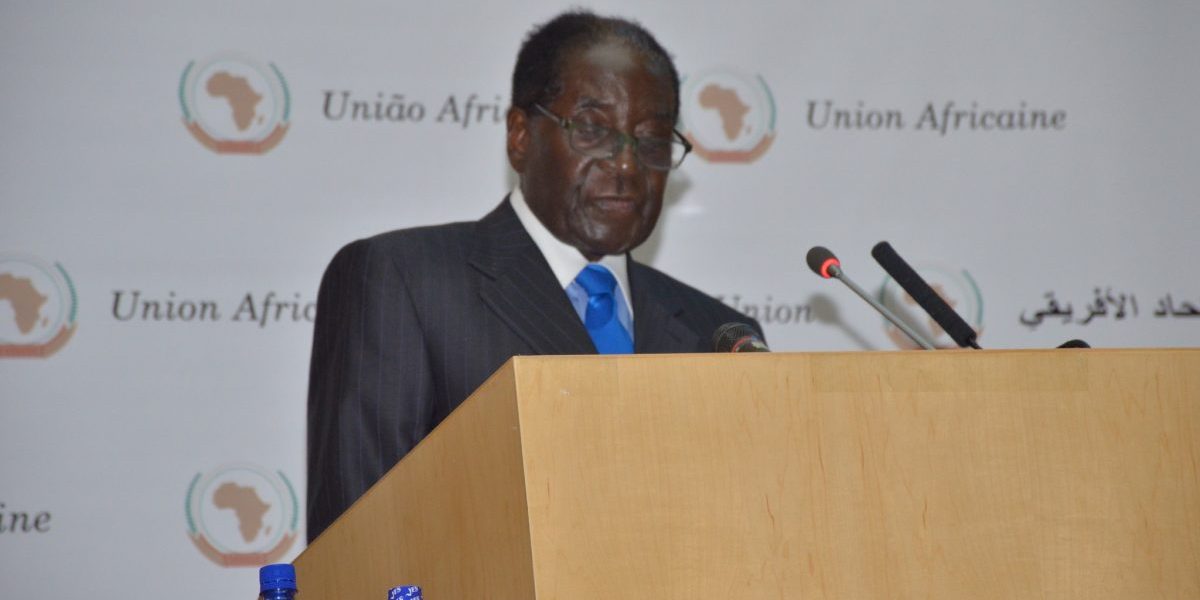Researchers say certain Zimbabweans have benefited from ruling-party patronage, but that Mugabe’s higher approval rating can mostly be ascribed to state propaganda. Entitled The Power of Propaganda: Public Opinion in Zimbabwe, the poll found that 46% of Zimbabweans now trust Mugabe, compared with 20% in 1999 when a previous survey was conducted.
Speaking at the Johannesburg launch of the poll results on Friday, Zimbabwean activist Brian Raftopoulos noted that all foreign journalists have been expelled from Zimbabwe for reporting critically on the country – and that significant pressure has been brought to bear on the local independent press.
‘This has had a huge, negative impact on the public. Every day the state media demonises the opposition and its leaders. Morgan Tsvangirai (head of the opposition Movement for Democratic Change and his colleagues have no access to the media to respond to those criticisms,’ Raftopoulos explained.
Only 18% of those polled said they trusted Tsvangirai.
Robert Mattes of the South African Institute of International Affairs told the launch that people loyal to Zimbabwe’s ruling Zanu-PF party, the military forces and resettled peasant farmers have benefited under Mugabe.
‘They not only regard the economy as having improved in the past year, but they credit the president with improvements in their own economic conditions.
‘Other people – especially the younger population and rural dwellers – are afraid to express their true political preferences. Fully four of five Zimbabweans … say they must often or always be careful about what they must say about politics,’ Mattes said.
‘Even though we took pains to convince respondents that we represented a neutral research organisation, 46% told us at the end of the interview that they believed we were actually from the government.’
The poll was conducted from April 26 to May 17 by the Institute for Democracy in South Africa, the Ghana Centre for Democratic Development and Michigan State University – located in the United States. It forms part of the AfroBarometer project, which surveys political, social and economic trends in 16 African countries.
Researchers had intended to poll 1 200 people. However, they said they were forced to settle for 1 104 respondents because of interference from Zimbabwe’s secret police, the Central Intelligence Organisation.
The poll indicates that Zimbabweans are also losing faith in democracy. Only 48% of people who were interviewed expressed support for this form of government, compared with 71% in 1999.
In addition, increasing numbers of Zimbabweans appear to be acquiescing to the notion of one-party rule.
Fifty-eight percent of respondents in the poll said they rejected the idea – down from 74% five years ago. Seventy-five percent said that competition between political parties leads to conflict – something that might explain the decision of 51% not to align themselves with the ruling party or opposition.
At independence in 1980, Zimbabwe inherited a situation where a small minority of whites owned most of the country’s best farmland.
Both Britain and the US promised to fund a ‘willing seller, willing buyer’ programme, which was to have seen the orderly transfer of land from whites to blacks.
Although a certain amount of land was redistributed, the issue remained a thorny one – paving the way for a series of land seizures that began in 2000.
Zanu-PF has claimed that the farm occupations were led by war veterans angered by the slow pace of land reform. However, political observers allege that they were orchestrated by the ruling party in a bid to muster support ahead of parliamentary elections in 2000.
The land seizures have deepened the effect of drought on Zimbabwe, which is currently plagued by severe food shortages. The country’s economy has also gone into steep decline during the past four years.
In addition, the 2000 legislative election and the 2002 presidential poll were marred by widespread violence – most of it directed against the opposition – and by voting irregularities.
‘We have a weakness in the region (Southern Africa) about (pointing out) human rights (abuses),’ said Raftopoulos.
The 13-member Southern African Development Community (SADC) adopted a wide-ranging set of electoral guidelines last week that are aimed at ensuring fair polls in the future. Certain critics allege that the measures lack teeth – although South African President Thabo Mbeki has warned that countries that disregard them may find themselves expelled from the SADC.
On the matter of HIV/Aids, the AfroBarometer survey found that only 7% of respondents were concerned about the pandemic – even though 78% said they knew someone who had died from Aids-related diseases.
Mattes said this apparent paradox was understandable.
‘Hunger kills in a few days, but Aids kills in five years,’ he noted. HIV prevalence in Zimbabwe is more than 30% for persons aged between 15 and 49 years.








